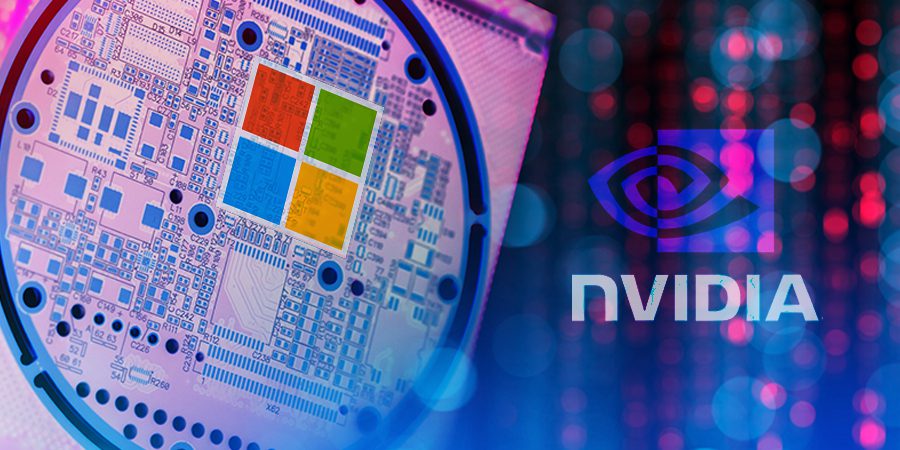In this article, we’ll look at the reasons behind Microsoft’s reported development of its own AI chips, codenamed “Athena,” and how it may impact the AI landscape currently dominated by Nvidia.
Key Takeaways:
- Microsoft’s “Athena” chips aim to reduce reliance on Nvidia’s GPUs for AI training.
- The company has been secretly working on the project since 2019.
- The chips are not direct replacements for Nvidia’s, but could offer cost-effective alternatives.
- Other tech giants like Amazon, Google, and Meta also have their own in-house AI chips.
The Secret Project: Athena
Rumors have been circulating about Microsoft’s mysterious project to develop in-house AI chips since 2019.
Codenamed “Athena,” the project has been kept under wraps, with only a select few Microsoft and OpenAI employees having access to the chips for testing purposes.
The Information’s report highlights that over 300 employees have been dedicated to the development of these chips, emphasizing the importance of this project for Microsoft.
Athena’s primary aim is to reduce Microsoft’s reliance on Nvidia GPUs for AI training.
The high demand and limited supply of Nvidia’s GPUs have driven prices up, with their latest H100 GPUs selling for over $40,000 on eBay.
Microsoft’s foray into the AI hardware space with Athena could provide a cost-effective alternative to Nvidia’s GPUs while ensuring the company’s AI development remains competitive.
Microsoft’s AI Goals: Bing, Office Apps, and Beyond
Microsoft has been making significant strides in the AI sector, integrating AI-powered features into its products and services. Bing, Office apps, GitHub, and other platforms have all seen the implementation of AI-based technologies, improving user experience and functionality.
The development of Athena chips highlights Microsoft’s commitment to furthering its AI goals.
With AI becoming an increasingly important part of the tech landscape, Microsoft’s push to develop its own AI chips will ensure the company stays at the forefront of the industry.
The in-house chips are expected to be used for various AI applications, including large language models like GPT-4 and other AI services.
Microsoft’s dedication to AI is also apparent in its collaboration with OpenAI.
The two companies have been working together on projects like ChatGPT, with Microsoft using OpenAI’s technology to develop its Bing Chat service.
By creating its own AI chips, Microsoft aims to optimize its AI services’ performance, making them more efficient and cost-effective.
Impact on the AI Industry: Competition for Nvidia
Nvidia’s dominance in the AI hardware market has remained largely unchallenged, with many companies racing to acquire their GPUs for AI development.
However, the emergence of in-house AI chips from major tech giants like Microsoft, Amazon, Google, and Meta could signal a shift in the industry’s reliance on Nvidia.
While Microsoft’s Athena chips are not direct replacements for Nvidia’s GPUs, they could offer a more affordable option for companies looking to use AI in less intensive applications.
This increased competition in the AI hardware market could lead to greater innovation and the development of more efficient and cost-effective solutions for businesses of all sizes.
Microsoft’s push to create its own AI chips is also part of a broader trend in the tech industry. Companies are increasingly looking to develop custom, in-house hardware solutions to meet their specific needs.
This trend can be seen with Microsoft’s custom SQ1 processor, as well as Apple and Google’s efforts to create their own silicon.
It remains to be seen whether Microsoft’s Athena chips will become available to Azure cloud customers or if they will be exclusively for internal use within Microsoft and OpenAI.
However, their development could potentially provide more options for companies looking to integrate AI into their business processes and services.
Conclusion
Microsoft’s reported development of its own AI chips, known as “Athena,” showcases the company’s commitment to advance in the AI landscape.
As more tech giants develop in-house AI chips, the industry may see a shift in the reliance on Nvidia’s GPUs, leading to a more competitive AI hardware market.
This increased competition could potentially drive innovation, leading to the development of more efficient and cost-effective AI solutions for businesses of all sizes.
As Microsoft and other tech giants continue to invest in AI technologies and develop their own hardware, the future of the AI industry is likely to see an accelerated pace of growth and a wider range of applications across various sectors.
 Sections of this topic
Sections of this topic
















